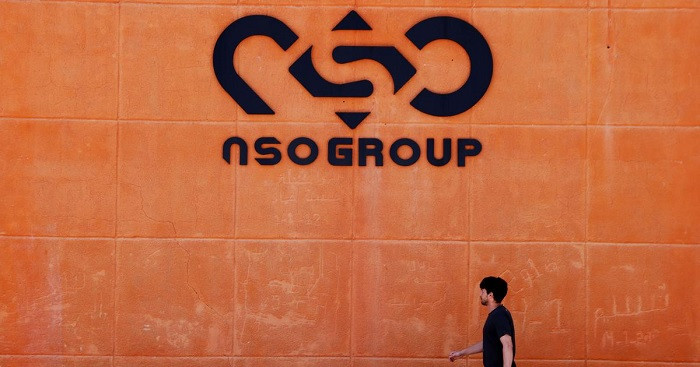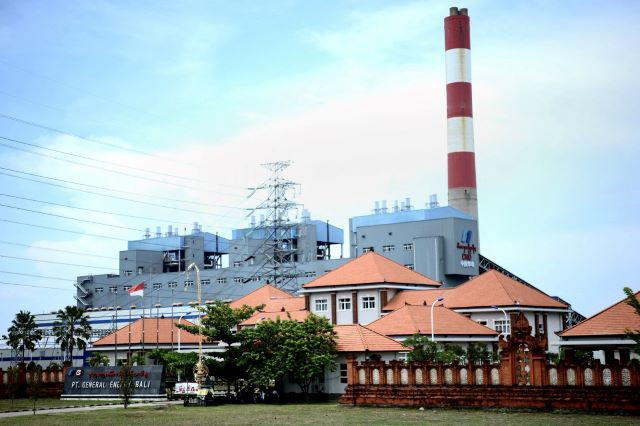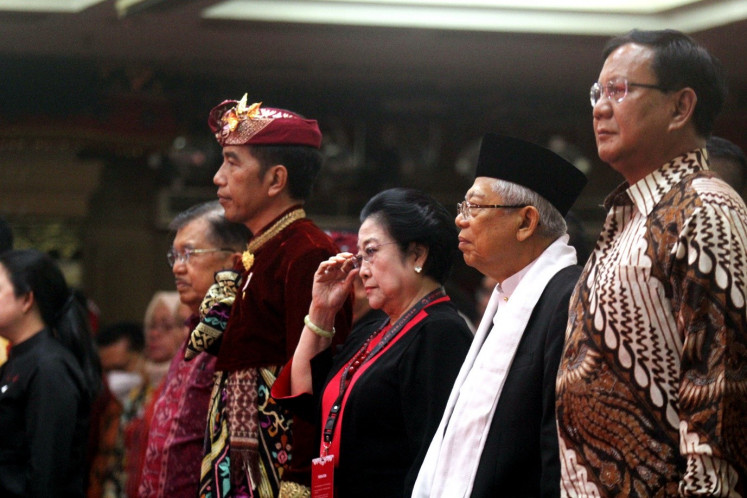Government housing program gets boost
Facing likely failure in achieving its target this year, the government expects better results in its subsidized housing program in 2018 as it will have extra funding support from state home financing firm Sarana Multigriya Finansial (SMF)
Change Size

F
acing likely failure in achieving its target this year, the government expects better results in its subsidized housing program in 2018 as it will have extra funding support from state home financing firm Sarana Multigriya Finansial (SMF).
SMF will participate in the government’s housing loan liquidity facility (FLPP) scheme next year by providing Rp 3 trillion (US$210 million) in addition to the allocated funds worth Rp 4.1 trillion in the 2018 state budget.
The company, which is under the Finance Ministry’s supervision, would focus on becoming a government financial tool as it works with the housing finance fund management center (PPDPP), a public service agency working for the FLPP scheme.
“The challenge is to secure a long-term competitive source of funding to reduce the government’s fiscal burden in supporting the mortgage program,” said SMF president director Ananta Wiyogo on Wednesday.
SMF’s participation in the FLPP scheme would help reduce the amount of funds the government has to allocate for each house built, said Lana Winayanti, director general for home financing at the Public Works and Public Housing Ministry.
“[The government’s budget portion] will go down. With the government budget of Rp 3.1 trillion, we can [build] more homes,” Lana said.
The initial government portion in financing the FLPP scheme was set at 90 percent, while the rest would be covered by the banking sector. With SMF’s participation, the government’s portion could be reduced to 77 percent.
PPDPP operational director Nostra Tarigan said its partnership with SMF would result in extra subsidies for around 60,000 to 70,000 homes through the FLPP scheme next year.
The ministry initially intended to provide 42,000 units of housing through the FLPP scheme next year, but with SMF’s participation, she expected the figure would reach more than 50,000 units.
In an effort to support the program, SMF planned to raise extra funds worth Rp 2 trillion from the capital market to leverage the Rp 1 trillion it had already pocketed from a state capital injection, Ananta said.
Ananta said SMF would also participate in the government’s other subsidized housing schemes, such as the interest gap subsidy (SSB) and down-payment facility (BUM).
In the FLPP scheme, people with a maximum monthly income of Rp 4 million may enjoy a fixed interest rate of 5 percent in their mortgage for 20 years through the government’s subsidy.
The government plans to reduce Indonesia’s home ownership backlog to 6.8 million homes in 2019 from the current 11.4 million by launching the one million houses program through an FLPP mechanism.
Under the program, the Public Works and Public Housing Ministry and developers, along with regional administrations and other agencies, are expected to build 700,000 homes for people on low-incomes annually. Developers are also targeting to build 300,000 non-subsidized homes.
However, the government has been failing to reach the one million house target as it has only recorded having completed 805,169 housing units last year, while the figure as of Dec. 20 had just reached 765,120 housing units.
According to the ministry, generally there has been a downward trend in house purchasing as people seem to prefer renting instead of buying to benefit from mobility, especially in urban areas.
Ignatius Untung, country general manager of online housing portal rumah123.com said the property industry would most likely be in a wait-and-see mode as they welcome 2018 after sluggish property sales over the past couple of years.
“Most likely, property developers will go all-out in the first half of 2018 and the trend will continue until two months after the Idul Fitri holiday,” Ignatius said.
The trend reflects that developers may realize the second half of next year will see the start of the presidential election campaign season, which could lead to potential political and social sentiments that may harm the domestic economy, and in turn harm property sales.
However, if everything went as normal, political campaign season would benefit developers as more money would enter the economy because of higher spending by political parties, Ignatius said.
Meanwhile, Anton Sitorus, head of research and consultancy at property consultancy firm Savills Indonesia, said developers’ interest in landed housing was slowing because of the shortage of available land, prompting them to build apartments and condominiums instead as they were more profitable. (jlm)









